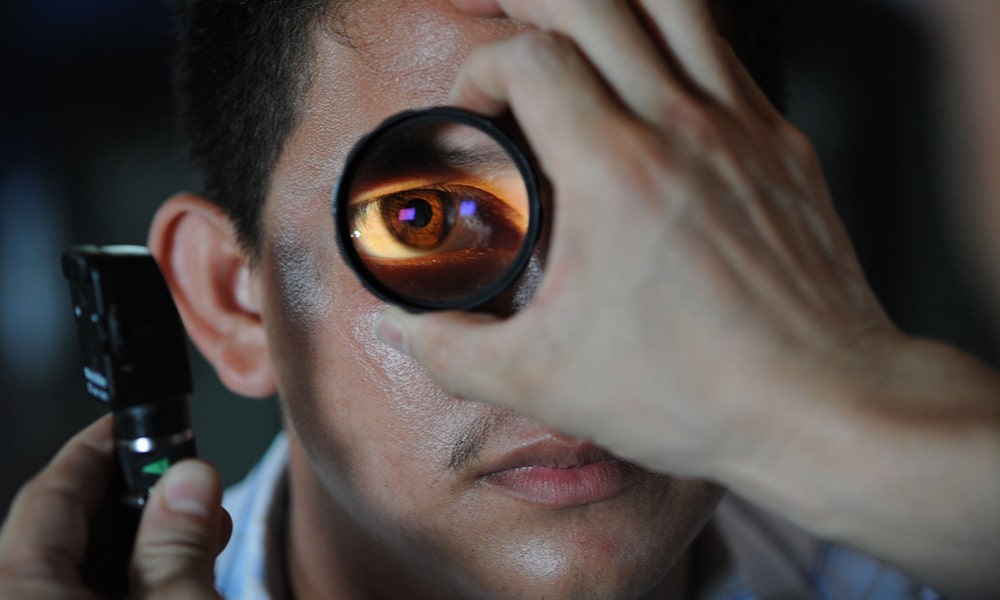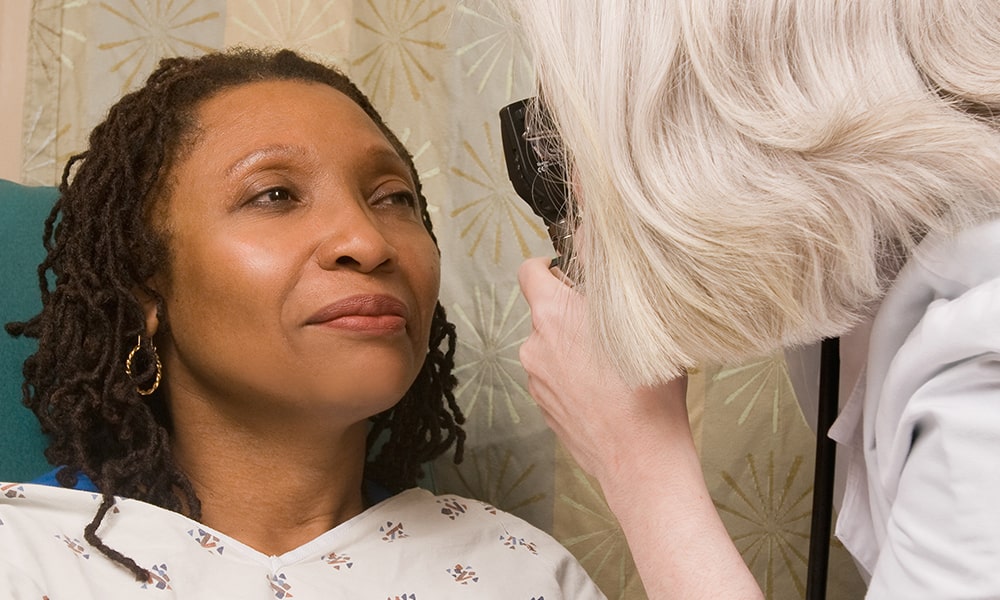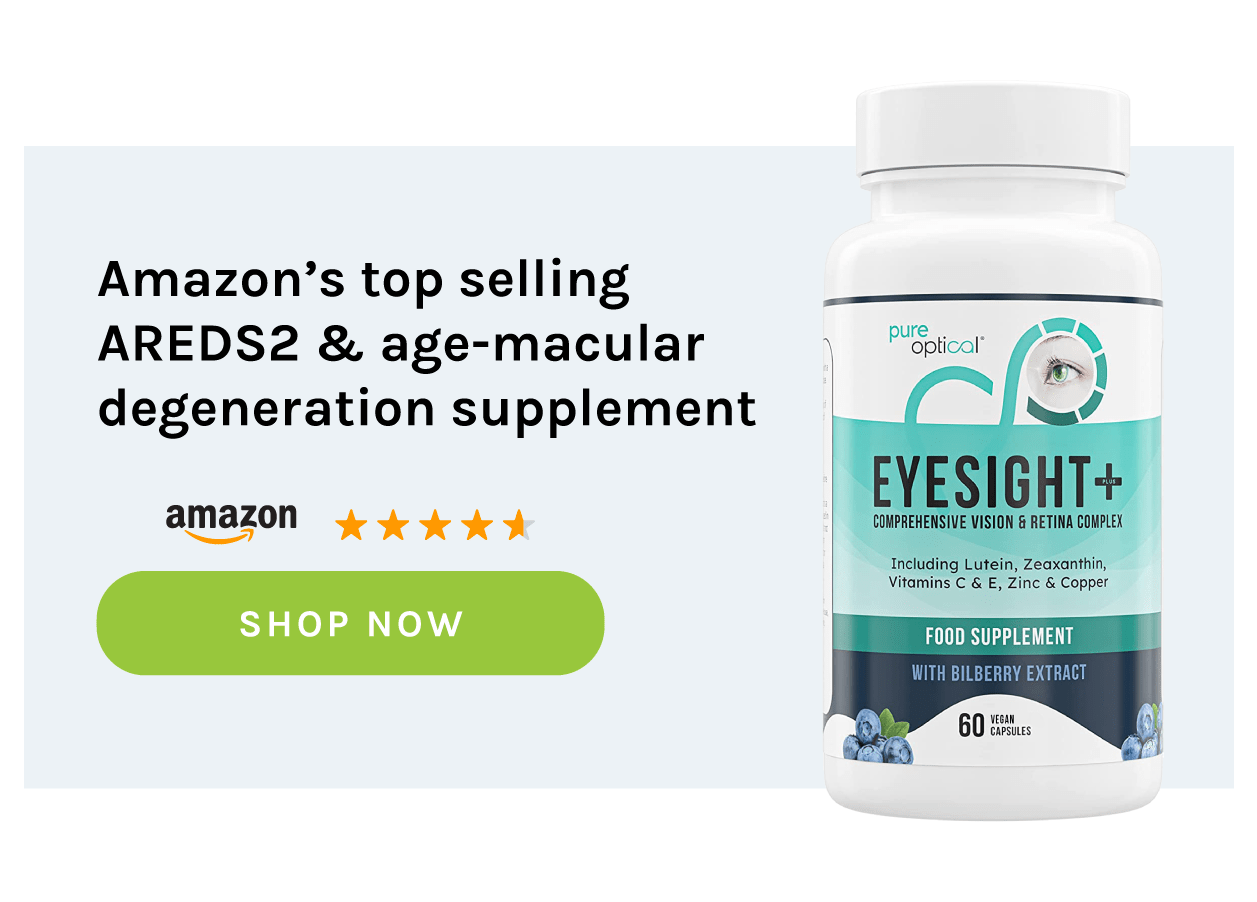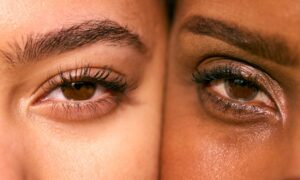Central serous retinopathy (CSR) and macular degeneration are two distinct conditions that affect the retina, the thin layer of tissue at the back of the eye responsible for vision. Both disorders can have a profound impact on an individual’s vision.
This article delves into the relationship between CSR and macular degeneration and discusses the role of supplements, including Eyesight Plus AREDS 2 Vitamins for Eyes, in the management and prevention of these retinal diseases.

Understanding central serous retinopathy
CSR is a condition characterized by the accumulation of fluid beneath the retina, specifically under the macula, which is the central part of the retina responsible for sharp central vision. This fluid buildup can lead to temporary vision distortion.
Causes and risk factors
While the exact cause of CSR is unknown, it is believed to be linked to increased levels of corticosteroids in the body, either from endogenous production or as a result of steroid medication. Other risk factors include:
- Stress
- Type A personality
- Pregnancy
- Certain medications
- Hypertension
Symptoms
Common symptoms of CSR include:
- Blurred vision
- Distorted vision (straight lines might appear bent)
- Reduced night vision
- A dark or gray spot in the central visual field
Understanding age-related macular degeneration (AMD)
AMD is a chronic condition that affects the macula and leads to a loss of central vision. The disease progresses slowly and is categorized into two types: dry and wet.
Dry AMD: This is the more common form, characterized by the thinning of the macula and the accumulation of drusen, which are small yellowish deposits under the retina.
Wet AMD: This form is less common but more severe. It involves the growth of abnormal blood vessels under the retina, leading to leakage of blood and fluid, causing rapid vision loss.
💡 Read more: Is Macular Degeneration a Disability?
Is there a link between CSR and AMD?
Research to date has not shown a direct causative relationship between CSR and the onset of AMD. However, there are some points of intersection:
1. Age factors
While CSR is more common in younger individuals, typically between the ages of 30 and 50, and AMD is more prevalent in those over 60, it’s possible for someone who has experienced CSR in their younger years to later develop AMD due to age or other risk factors.
2. Retinal changes
Recurrent episodes of CSR can lead to retinal changes, such as thinning of the retinal tissue or damage to the retinal pigment epithelium (RPE). While these changes do not directly cause AMD, they might make the retina more susceptible to diseases, including AMD.
3. Similar symptoms
The symptoms of CSR and early-stage AMD can be quite similar, particularly vision distortion and the presence of blind spots. This can sometimes make differentiation between the two conditions challenging.

Factors contributing to retinal health
Maintaining retinal health is of paramount importance, especially with the rise of conditions that can compromise vision. Several factors can influence the overall health of the retina:
- Genetics: A family history of retinal diseases can increase the risk of conditions like AMD. Regular screening is advisable for those with a family history.
- Environmental exposures: Prolonged exposure to harmful ultraviolet (UV) light can contribute to retinal damage. Wearing sunglasses with UV protection can help mitigate this risk.
- Lifestyle: Smoking is a major risk factor for many eye diseases, including AMD. Furthermore, a diet high in saturated fats and sugars but low in antioxidants and essential nutrients can compromise retinal health.
- Underlying health conditions: Diseases such as diabetes can lead to complications like diabetic retinopathy, which directly impacts the retina.
Prevention and early intervention
Retinal health, like all aspects of wellbeing, benefits from a preventative approach:
- Regular eye examinations: These can detect the early signs of retinal diseases, enabling timely intervention.
- Healthy lifestyle choices: A balanced diet rich in green leafy vegetables, fish, and fruits can support eye health. Omega-3 fatty acids, found in oily fish like salmon and mackerel, have been shown to have potential benefits for the retina.
- Manage stress: Given the potential link between CSR and stress, managing and reducing stress through mindfulness, exercise, or other relaxation techniques can be beneficial.
Further implications of CSR
While CSR is primarily known for its immediate impact on vision, recurrent or chronic CSR can have long-term implications:
- Chronic CSR: This can lead to retinal thinning, RPE damage, and potentially, vision loss.
- Impact on quality of life: Even temporary vision loss or distortion can significantly impact daily activities and mental well-being.
Vitamins for retinal health
The Age-Related Eye Disease Study 2 (AREDS2) was a significant research initiative that studied the effects of specific eye vitamins and minerals on the progression of AMD. The findings suggested that a combination of certain antioxidants and zinc could reduce the risk of progression to advanced AMD by about 25%.
Eyesight Plus AREDS 2 Vitamins for Eyes is a supplement that contains this researched blend of vitamins and minerals, making it an ideal choice for those looking to bolster their retinal health, especially if they are at risk for AMD.
While the AREDS 2 formula specifically targets AMD, it underscores the broader point about the importance of nutrition in retinal health. It’s conceivable that such supplements might offer some protective benefits against other retinal conditions, including CSR, although direct research in this area remains sparse.

There is not a direct link between CSR and AMD
While central serous retinopathy and age-related macular degeneration are distinct in their origins and manifestations, they both underscore the need for proactive measures in retinal care. Modern lifestyles, which often include increased screen time and environmental stressors, mean that our eyes are under constant strain. Supplements like Eyesight Plus AREDS 2 Vitamins for Eyes provide a proactive measure in maintaining optimal eye health, highlighting the evolving nature of our understanding and approach to ocular wellbeing.





